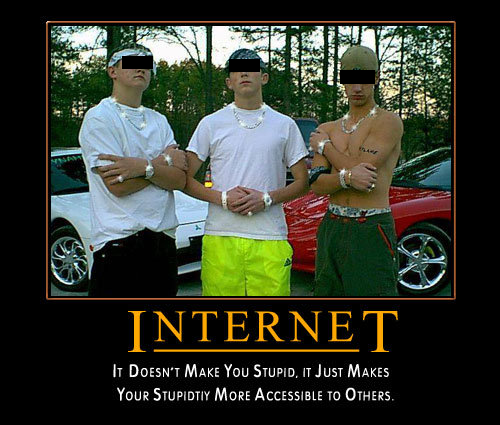Off Topic(?)
Increased Internet Usage and Social Isolation
The study by the Stanford Institute for the Quantitative Study of Society (SIQSS) has its 10th anniversary now as I stumbled over a new study by the German ifo-Institut, looking into the same topic a decade later.

- The SIQSS study states:
– Internet isolates people
– Internet allows work to intrude into home
– Internet causes people to remain “home alone and anonymous” - The ifo-study says:
“Web-Nutzung hat keinen negativen Einfluss auf sogenannte Face-to-Face-, also persönliche Sozialkontakte (außer mit Verwandten: Web-Nutzer haben weniger Verwandtschafts-, aber mehr Bekanntschaftskontakte)”
Using the web does not have a negative effect on so-called face-to-face, i.e., personal social contacts (except with relatives: web-user have less contacts with relatives, but more with acquaintances)
From a statistical point of view the studies are questionable anyways; the Stanford study does not reveal what was exactly done (beyond correlations/associations), and the ifo-study shows loads of significant terms of a linear model of very questionable stability. The former are social scientists the latter economists.
That somehow predefines the results. Social scientists will look critical on the changes the internet brings with it whereas economists must praise modernism fueling revenues that pays their salaries.
My personal opinion (and observations) is closer to what the SIQSS study showed than to what the ifo-institue delivered. The studies are certainly based on different situations as the ifo-study looks into the internet world of Web 2.0 and the so called “social networks”, but nonetheless, while working “with” the internet, we do not really interact with humans – ask my kids …




Hi Martin
nice post. First because of the hidden relevance of the topic and second because of the combination of the two different views.
Without a doubt internet usage consumes a lot of lifetime and energy.
At first glance the hypothesis of social isolation seems weird, since communication possibilities are dramatically increased by the Internet. However, social isolation might be a second or third order effect: Maintaining social contacts over the Internet is easier than in the real world. With a click there is a sign in and sign out option; little physical action is required to maintain a contact. On the other hand, maintaining real world social contacts is much harder. It requires for instance to travel in order to see someone. Because of this, individuals might be tempted to fulfill their social need with internet contacts rather than real world contact, which is of course not of the same quality and can lead to a decline of social skills which is not really noticed.